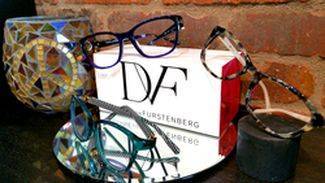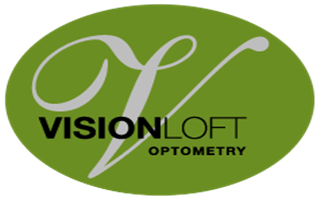 At the Vision Loft, we want to make sure that you receive all of the information that you need to make educated decisions about your eye health. Our eye doctors in Concord, NC are always available to answer your questions. Please feel free to send us your eye care questions to info@thevisionloft.com
At the Vision Loft, we want to make sure that you receive all of the information that you need to make educated decisions about your eye health. Our eye doctors in Concord, NC are always available to answer your questions. Please feel free to send us your eye care questions to info@thevisionloft.com
Q: Will wearing eye glasses cause me to become dependent on glasses?
Dr. Chen: Eyeglasses are used to correct blurry vision. Since clear vision with eyeglasses is preferable to uncorrected vision, you may find that you want to wear your eyeglasses more often. Although it may feel as if you are becoming dependent on your eyeglasses, you are actually just getting used to seeing clearly.
Q: Will wearing eye glasses cause me to become dependent on glasses?
Dr. Chen: Eyeglasses are used to correct blurry vision. Since clear vision with eyeglasses is preferable to uncorrected vision, you may find that you want to wear your eyeglasses more often. Although it may feel as if you are becoming dependent on your eyeglasses, you are actually just getting used to seeing clearly.
Q: Why do I need to have my eyes dilated, how long will it last and can I drive after they are dilated?
Dr. Chen: a. Dilation allows the doctors to have a better view inside your eye to make sure your eyes are healthy. It is much like opening a door to see inside a room instead of looking in through a small window. With dilation, one can see the optic nerve head, blood vessels, the macula and out to the periphery of the retina.
b. Most individuals feel comfortable driving afterwards as long as he/she is wearing sunglasses. Some people do prefer to arrange for someone to drive them home. The pupils will remain larger than normal for 4 – 6 hours causing increased light sensitivity but vision is back to normal usually within the hour or two.
Q: Do I need to bring anything to my appointment?
Dr. Chen: Please bring a list of your medications, your vision and medical insurance cards, all recent glasses (reading and distance) with you to your exam, and any information you have on your contact lens if applicable.
Q: How long does an eye exam appointment last?
Dr. Chen: Your stay for a complete eye examination generally takes from 45 minutes to 1 hour.
Q: What is a polarized lens and do I need it?
Dr. Chen:
- Why Polarized Lenses? For all the benefits we receive from the sun, its light can pose serious vision problems. Sunlight reflecting off of smooth water, snow or flat roads can create glare which is not only annoying, but can often be dangerous. Blinding sun glare can cause accidents, snow blindness and can even sunburn your eyes. Long term exposure to sun glare has been known to cause cataracts. Thankfully, polarized lenses can shield you against the dangers of intense glare.
- The Benefits of Polarized Sunglasses A virtually invisible filter can be built into lenses to eliminate the amount of reflecting light that enters the eye. Polarized lenses not only reduce glare, they make images appear sharper and clearer, increasing visual clarity and comfort. Available for prescription and non-prescription sunglasses, polarized lenses can be worn indoors by light-sensitive people, including post-cataract surgery patients and those continually exposed to bright sunlight through windows. Most polarized sunglasses provide UV protection which is important to maintaining healthy eye sight. Just as we put on sunscreen to protect our skin, it’s critical that we protect our eyes from UV rays too.
- Enhancing Your Polarized Lenses Polarized lenses can be combined with other features to enhance vision, such as bifocal sunglasses and progressive lenses, and coatings like anti-reflective and anti-scratch.
Q: What is visual acuity? What do the 20/20 numbers mean?
Dr. Chen: 20/20 vision is a term used to express normal visual acuity (the clarity or sharpness of vision) measured at a distance of 20 feet. If you have 20/20 vision, you can see clearly at 20 feet what should normally be seen at that distance. If you have 20/100 vision, it means that you must be as close as 20 feet to see what a person with normal vision can see at 100 feet.
Having 20/20 vision does not necessarily mean you have perfect vision. 20/20 vision only indicates the sharpness or clarity of vision at a distance. Other important vision skills, including peripheral awareness or side vision, eye coordination, depth perception, focusing ability and color vision, contribute to your overall visual ability.
Q: What are some of the warning signs that might indicate my child has a vision problem?
Dr. Chen:
- Consistently sitting close to the TV or holding a book too close.
- Frequent eye rubbing.
- Losing place while reading or using a finger to guide eyes when reading.
- Closing one eye to read or watch TV.
- Receiving lower grades than usual.
- Squinting or tilting the head to see the class board better.
Q: Do you treat eye infections?
Dr. Chen: Optometrists not only treat common vision problems; such as nearsighted, farsighted and presbyopia; but they also screen, evaluate and treat eye diseases such as conjunctivitis (“pink” eye), dry eyes, eye allergies, eye pain, eye injury, eye lid bumps (stye) and glaucoma. Other conditions that an optometrist evaluates and monitors are macular degeneration, cataracts, retinal conditions associated with systemic conditions such as diabetes, high blood pressure and high cholesterol.
Q: I was diagnosed as type 2 diabetic. I’m in good health but told recently I have the early stages of retinopathy (damage to light sensitive tissue in back of the eye). How many years on average,with good diabetic control, does it take to develop further and start to affect eyesight?
Dr. Chen: With good diabetic control, there is a high likelihood that you will not develop retinopathy to the point that it will affect your eyesight. It is critical that you maintain good diabetic control and that you see our doctors regularly for dilated retinal examinations.
Q: How does high blood pressure affect vision?
Dr. Chen: If the blood pressure is very high it can be called malignant hypertension and cause swelling of the macula and acute loss of vision. Otherwise hypertension can cause progressive constriction of the arterioles in the eye and other findings. Usually high blood pressure alone will not affect vision much, however hypertension is a known risk factor in the onset and/or progression of other eye disease such as glaucoma, diabetic retinopathy, and macular degeneration as well as blocked veins and arteries in the retina or nerve of the eye that can severely affect vision.
Q: Should I purchase a separate pair of sunglasses?
Q: What are the benefits to choosing Anti-Glare Treatment on my lenses?
Dr. Chen: We recommend Crizal Alize UV to provide the clearest vision possible by protecting against glare, scratches and smudges so you can see and look your best. Lenses treated with Crizal Alize UV also provide daily protect against the invisible and often irreversible dangers of UV reflection.
Q: Why do you recommend my child wear polycarbonate lenses?
Dr. Chen: We fit all our children 18 years old and younger in polycarbonate lenses. Polycarbonate lenses are thinner and lighter than regular plastic lenses. They also offer protection from the sun’s harmful UV light and are up to 10 times more impact-resistant than plastic or glass lenses.
Q: What is so important about how glasses fit?
Q. What is astigmatism??
Dr. Chen: Astigmatism is another reason that one may need to wear glasses, contact lenses or have refractive surgery to see better or more comfortably. An easy way to think of astigmatism is when the front surface of the eye (cornea) is more oval shaped, like a football rather than round, like a basketball. Symptoms may be blurred or distorted vision or headaches and/or eyestrain. Large amounts of astigmatism cause vision to be blurry at all distances.
